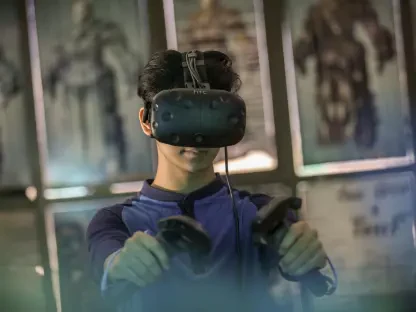In a powerful display of civic engagement, residents from Colorado recently journeyed to the heart of the nation’s capital to make their voices heard on two pressing issues: the urgent need for increased funding in cancer research and the critical importance of bolstering early childhood education programs. These advocates, driven by personal experiences and a deep commitment to societal progress, met with congressional representatives to push for policies that could transform lives. Their stories, filled with both heartache and hope, underscored the real-world impact of legislative decisions. From cancer survivors sharing tales of survival against the odds to educators emphasizing the foundational benefits of early learning, the delegation sought to bridge the gap between personal struggles and public policy. This concerted effort in Washington, D.C., highlights a broader movement of grassroots advocacy, where ordinary citizens strive to influence extraordinary change in health and education sectors, reflecting a profound dedication to shaping a better future for all.
Personal Stories Fuel Cancer Research Advocacy
The emotional weight of personal narratives became a cornerstone for Coloradans advocating for cancer research funding during their time in Washington, D.C. Individuals like Rachel Sanchez, a cancer survivor who has endured the loss of family members to the disease, brought a raw and compelling perspective to the discussions. Having battled cancer while relying on Medicaid, Sanchez spoke passionately about how research advancements saved her life and stressed the importance of representing those unable to advocate for themselves. Her testimony before lawmakers was not just a plea for funding but a vivid reminder of the human toll of insufficient resources. The urgency in her voice resonated with many, illustrating how each dollar allocated to research could mean the difference between life and death for countless patients. This personal connection transformed abstract policy debates into tangible, relatable issues, urging representatives to consider the faces behind the statistics when making funding decisions.
Beyond individual accounts, the collective resolve of cancer survivors and advocates added depth to the lobbying efforts. Sabrina Wright-Hobart, a seasoned advocate with a prominent cancer organization, expressed both empowerment and frustration in her mission to effect change. While she finds strength in using her journey to push for progress, encounters with lawmakers who offer little more than sympathetic words often leave her disheartened. Yet, others like Jamie Vigil and Martha Cox maintain a pragmatic outlook, acknowledging the slow pace of policy shifts while emphasizing the value of persistent engagement. Their belief is that even if immediate legislative victories remain elusive, the act of showing up and sharing their experiences plants seeds for future change. This blend of determination and realism among advocates underscores a shared understanding that advocacy is a long-term commitment, requiring resilience in the face of political inertia and systemic challenges to secure advancements in cancer research.
Early Childhood Education Takes Center Stage
Shifting focus to education, Coloradan advocates associated with initiatives supporting young learners made a compelling case for programs like Head Start during their Capitol Hill visits. Kiki McGough, a dedicated proponent of early childhood development, highlighted the passion driving her group’s mission to ensure children receive foundational support during their most formative years. Emphasizing the long-term benefits to society, such as improved academic outcomes and reduced socioeconomic disparities, McGough urged lawmakers to view funding as an investment rather than an expense. Her arguments centered on the idea that early intervention equips children with the tools needed for lifelong success, thereby strengthening communities as a whole. The fervor of this delegation aimed to elevate education as a priority issue, even amidst competing legislative agendas, by demonstrating how early support can yield dividends for generations.
Complementing this perspective, Dr. Cathrine Floyd brought an academic lens to the advocacy efforts, stressing the role of constituent voices in shaping policy on early childhood education. Many lawmakers, often preoccupied with more immediate or high-profile concerns, may overlook the nuanced importance of programs supporting young children. Floyd argued that direct engagement from citizens helps bridge this gap, educating representatives on the profound impact of early learning opportunities. The discussions revealed a shared goal among advocates to build lasting relationships with policymakers, fostering a dialogue that could influence future budgets and legislation. Despite facing fiscal constraints and competing priorities in Congress, the commitment to highlighting the societal value of early education remained unwavering. This strategic approach of combining data-driven arguments with personal outreach sought to ensure that the needs of the youngest learners remain a focal point in national policy conversations.
Navigating Political and Fiscal Challenges
The advocacy efforts for both cancer research and early childhood education encountered significant hurdles rooted in the current political and fiscal landscape. Budget cuts and policy decisions in recent years have posed substantial threats to innovation in medical research, with advocates warning of dire consequences, including stalled progress that could cost lives. The frustration is palpable among those who see firsthand the potential of scientific breakthroughs, only to face resistance or indifference from some quarters of Congress. This climate of uncertainty compels advocates to push harder, emphasizing that funding reductions are not merely numbers on a spreadsheet but decisions that impact real families. The challenge lies in convincing lawmakers to prioritize long-term health outcomes over short-term fiscal considerations, a task that requires both persistence and strategic communication to navigate partisan divides.
In parallel, early childhood education advocates grapple with similar budgetary constraints as Congress debates broader government spending. The competition for limited resources often sidelines programs that lack immediate visibility, making the task of securing support an uphill battle. Yet, there is a silver lining in the recognition from even skeptical lawmakers that constituent input can shift perspectives on less familiar issues. For instance, direct dialogue has prompted some representatives to reconsider policies they previously overlooked, suggesting that personal outreach can spark meaningful reflection. While systemic barriers remain, the consensus among Coloradans is that sustained engagement with policymakers holds intrinsic value, fostering incremental progress. This duality of facing entrenched challenges while finding small victories in dialogue encapsulates the complex reality of advocacy, where every conversation is a step toward potential change.
Reflecting on the Power of Persistent Voices
Looking back on the journey of Coloradans to Washington, D.C., their efforts stood as a testament to the enduring impact of grassroots advocacy in shaping policy on cancer research and early childhood education. The blend of personal storytelling and strategic engagement with lawmakers painted a vivid picture of dedication, even when immediate outcomes were uncertain. Survivors and educators alike poured their energy into raising awareness, driven by a belief that their voices mattered in the legislative arena. Their persistence, despite encountering political resistance and funding challenges, highlighted a profound commitment to causes that transcend partisan lines.
Moving forward, the path to progress lies in continuing to build bridges with policymakers through consistent dialogue and compelling narratives. Advocates must leverage every opportunity to educate representatives on the human stakes behind budget lines and policy decisions. Establishing coalitions that amplify these messages could further strengthen their influence, ensuring that health and education remain at the forefront of national priorities. The legacy of this advocacy effort serves as a call to action for others to join the cause, reinforcing that sustained, collective action holds the potential to drive meaningful legislative change in the years ahead.









